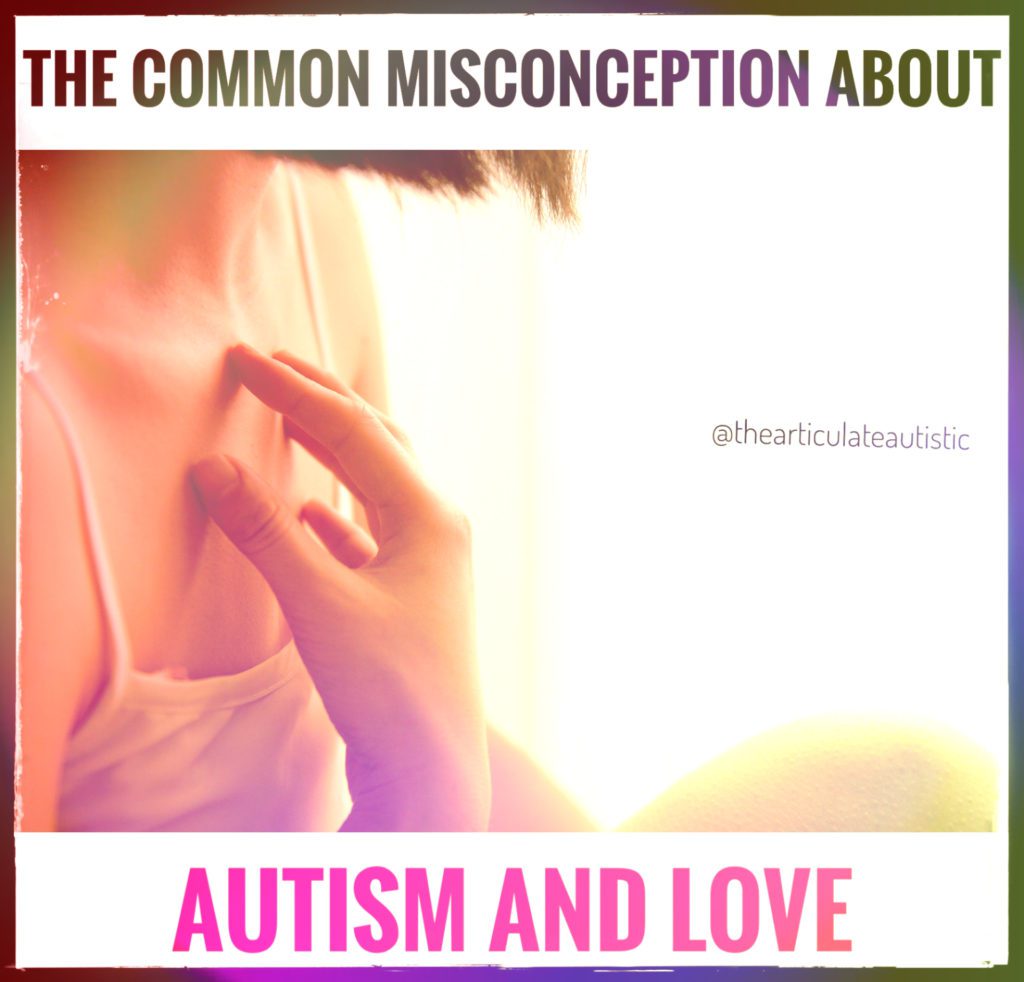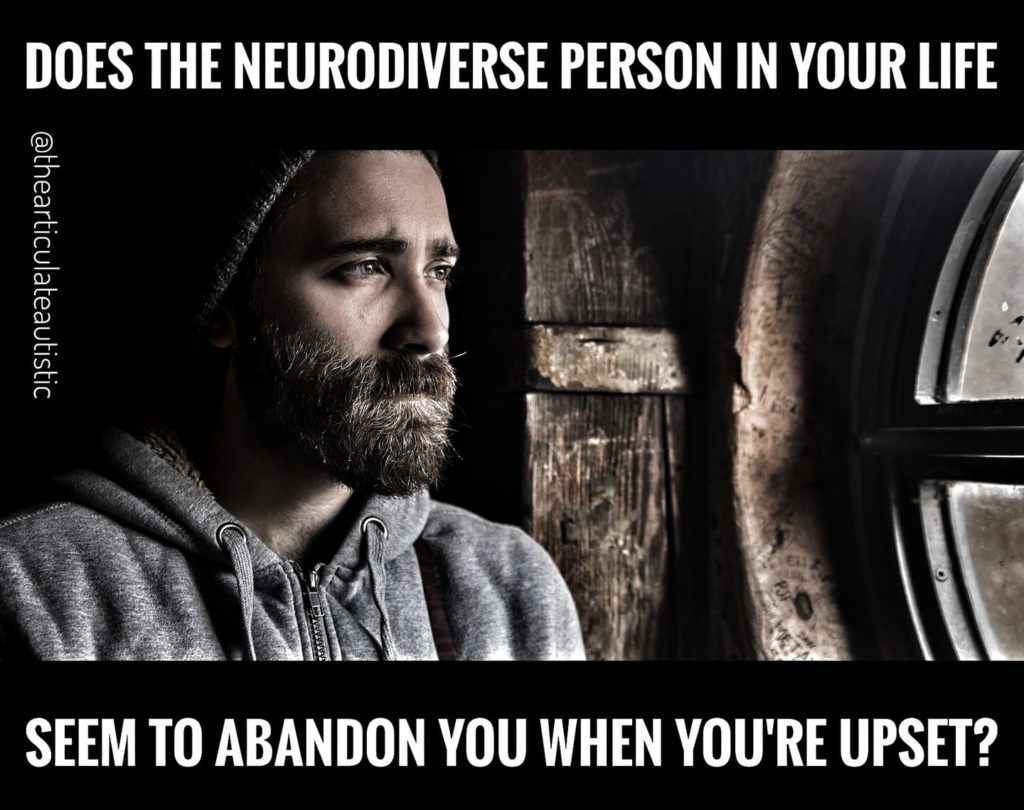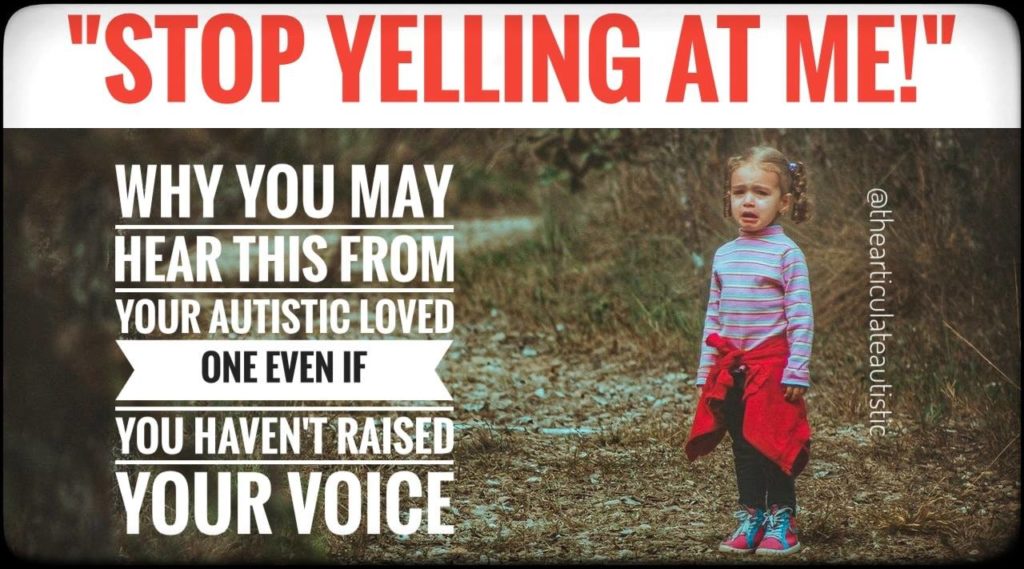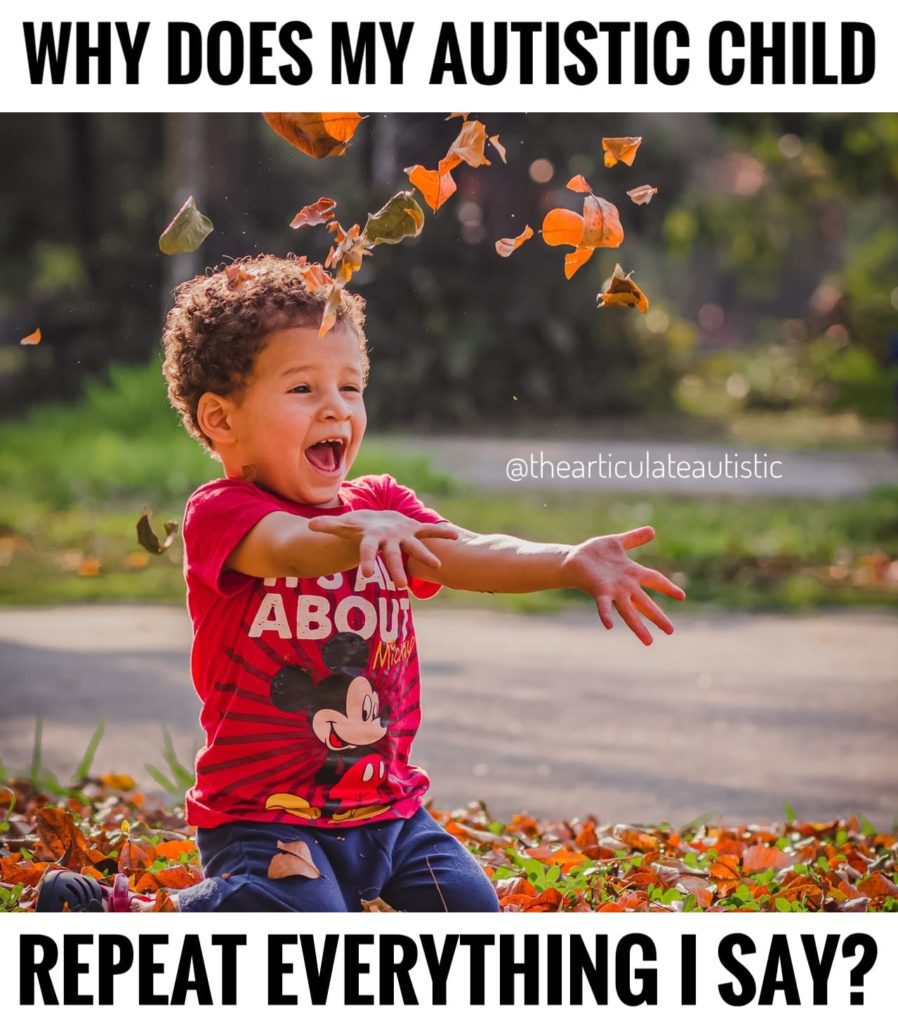The Common Misconception About Autism and Love

I’ve seen a few posts floating around on social media lately about how parents are overjoyed when their child on the spectrum says, “I love you” for the first time.
Now, I understand why that would be a joyful moment, but what I’m a bit iffy on are the comments I see from other parents hoping and praying for the same.
Again, I DO understand how monumental that would be, but…do neurotypical parents really believe their children don’t love them because they don’t say it in words? Is that the prevailing consensus?
Because I happen to be an autistic person who uses the word “love” ad nauseam, I can’t relate on that front exactly, but I used to express my love a lot differently before I learned how to speak neurotypical.
I ‘feel’ love at people. My face may not show it, and I might not say the words, but I feel it like a tidal wave of warmth and rushing emotion. I do express it, but empathically, through literally sending the energy from my soul to theirs.
I didn’t realize for a long time that most people didn’t do this, and even if I really cared for someone, they’d not be aware of it or even think I disliked them because they couldn’t feel what I was sending!
That was confusing for me for so many years. So, yes. I ‘feel’ love at people. It’s as natural to me as breathing.
If you’re a parent of an autistic child, you may believe that they don’t feel love for you because they don’t express it in the way a neurotypical child would. If you are neurotypical yourself, you may not recognize it when your autistic little one expresses love for you.
Although each person expresses love differently regardless of neurotype, there are some ways that your child on the spectrum may express their love for you.
For example:
- Sitting near you.
- Sharing toys with you.
- Drawing or coloring a picture for you.
- “Infodumping” about their special interest to you.
- Doing things for you (cleaning up, preparing a meal for themselves–so you can have a break–although this could backfire because they may make more work for you, but the intention is to show caring).
- Leaving you alone. (If we see you’re upset and we think or know we are the cause, we may make ourselves scarce so as to take away the source of your upset. We may not understand what we’ve done, but we sense your distress and it distresses us.)
These are only a few examples of how an autistic child or teen might show you that they care. Everyone is different, but what’s important to remember here is that sometimes, an autistic person will do or say something with the intention of showing affection, and the exact opposite results may occur, confusing the autistic person and irritating the neurotypical person they are trying to show affection to.
This leads me to another misconception about love on the autism spectrum. Confusion about autistic intentions and the inability of neurotypical parents to read the way their children show love is only one component.
The other component is the things an autistic child might do or say due to social processing differences and sensory overload that may mistakenly make a parent believe that their child actually hates them.
Here are some examples of the things an autistic young person may say or do that seem like a show of dislike of their parents or caregivers but are actually not:
- Screaming and shrieking
An autistic child (or adult) who is screaming and shrieking is either in serious sensory distress or feels as though they are not being heard or understood. They are at the end of their rope, and they can’t take it anymore.
This isn’t a sign of disrespect or hate, this is a sign of an impending meltdown or a meltdown already in progress, which the autistic person cannot in any way control or stop despite being yelled at, threatened, or punished.
Another potential reason for screaming and shrieking is the autistic child is sensory seeking. The sound of their own voice is soothing and comforting to them and/or something about the way the sound hits their eardrums gives them sensory input they need.
- Hitting and kicking
If your autistic little one is hitting and kicking, these are both signs of distress. It’s not hate, and it’s not directed at you specifically, it is most likely caused by sensory overload or frustration at not being understood. Behavior is communication, so, even though it’s distressing to deal with, these are attempts to communicate with you. Your child is trying to tell you that they have an unmet need, they are in sensory overload, they’re anxious, they’re confused, they’re frustrated, etc.
- Covering their ears when you talk or raise your voice
Certain sounds can be incredibly painful to autistic ears. I know for me, high-pitched voices hurt my ears. I can’t listen to Kate Bush. Like, I can’t tell you how much that woman’s singing voice grates on my every nerve, even though she was very popular in the ’90s, and so many people tried to get me to listen to her. If your child is covering their ears when you speak, either the sound of your voice, the volume of your voice, or a feeling of ‘angry energy’ being directed at them is most likely causing them to do it.
- Pulling away from hugs and kisses
Touch affects each autistic person differently. For some, hugs and kisses are simply intolerable. Again, this isn’t meant as disrespect or to show dislike for the person trying to hug or kiss them. For most neurotypical people, hugs and kisses are warm and comforting things, but they can be the exact opposite for us.
To give you an example of how we might be interpreting these shows of affection, imagine that you lived in a world where a hug was a poke with a needle and a kiss was a person taking mucus out of their nose and wiping it on you.

Now, imagine that every time you saw a relative or friend as a child, you were told that these needles and mucus were “love”, and it’s very rude not to accept them. No matter how much the needle hurt or the mucus disgusted you, you had to smile and take it because you were told that it doesn’t matter how your body is interpreting this sensory input, you must endure it because that’s what love is.
What’s even worse, if you refused to accept the needles and mucus, you were yelled at, threatened, punished, or even physically abused.
Make more sense now?
- Wiping off kisses on cheeks, foreheads, etc.
Speaking of mucus, I am one of those autistic people who does not like wet or even damp kisses. Making out is different, but I’m talking about a kiss on the hand, the cheek, or the forehead, or something like that.
If there is even a drop of moisture on someone’s lips, as soon as they pull away, I have the sensory reaction of someone covered in 1,000 slugs, and I HAVE to wipe it off because I cannot STAND the feeling. It’s icky and crawly and absolutely horrible. I got in trouble for this my entire life.
I wasn’t “wiping love away”, though. I was wiping away saliva, which is intolerable to me. Not just annoying, not just inconvenient, intolerable.
- Repeating what you say
Many autistic people repeat what others say or what we hear on TV or the radio. This is called echolalia. If your child is doing this, it is not a sign of disrespect or an attempt to mock you. Your child is actually trying to communicate with you!
If you’re the parent of an autistic child, please take the time to continue to peruse this site so you can better understand autistic motivations and intentions, which often differ greatly from that of neurotypicals.
Follow me on Instagram.
Want downloadable, PDF-format copies of these blog posts to print and use with your loved ones or small class? Click here to become a Patreon supporter!









Excellent article and you convey those Neurodistinct experiences in such a relatable way.
Thank you so much!
Thank you for sharing. I’m the mother of an autistic toddler and we are trying to focus on the ways he shows his love in his own way. It still hurts because we do want those “ I love you”s. What’s the best way to show that love back to him? He wipes away my kisses should I not kiss him and do something else?
Hi, Heather. If he’s wiping your kisses away, he probably feels the saliva lingering on his skin, and it’s causing him sensory distress. (I’m the same way. Cannot stand the feeling of saliva on my skin. Not only can I feel it, I can smell it, too, and it’s god-awful even if the person doesn’t have “bad breath”). When you think about showing love to your toddler, think about what makes him feel safe and comfortable, and as long as it’s not harmful to him or anyone else, do more of that. Helping him regulate his nervous system while being around you will help him feel like he can trust you. And yes, if he doesn’t like being kissed, don’t kiss him. It may be your way of showing affection, but it appears it feels anything but loving to him.